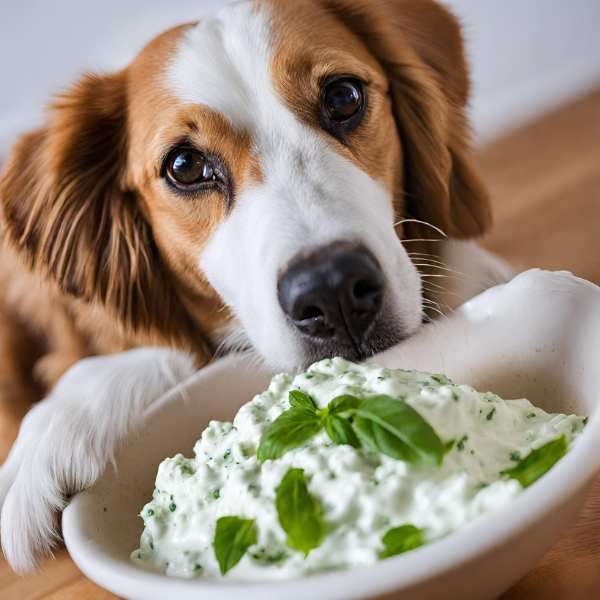No, dogs should not eat tzatziki. This Mediterranean dip has garlic, which is toxic to dogs, even in small amounts, and can cause serious health problems.
While tzatziki mainly contains yogurt and cucumbers, the presence of garlic makes it unsafe for dogs. Garlic can harm a dog’s red blood cells and lead to conditions like hemolytic anemia.
To keep your dog safe, avoid giving them foods with harmful ingredients like garlic. Instead of tzatziki, you can give many other healthy and safe foods that are specifically made for dogs.
If your dog happens to eat something potentially harmful, consult a veterinarian for guidance on what to do next.
Potential Health Risks of Tzatziki for Dogs
Here are the potential health risks of feeding tzatziki to dogs explained in more detail with each point as an h3 heading:
Garlic Toxicity
Tzatziki mostly contains garlic, which can be toxic to dogs even in small amounts. Garlic contains compounds that can damage a dog’s red blood cells, leading to a condition called hemolytic anemia. This can result in symptoms like weakness, lethargy, and pale gums.
Gastrointestinal Upset
Tzatziki has a creamy and rich flavor and texture which can cause problems in your dog’s digestive system.
Ingredients like yogurt and olive oil can be heavy on a dog’s stomach, potentially causing symptoms such as vomiting and diarrhea.
High-Fat Content
Tzatziki typically contains high-fat ingredients, such as yogurt and olive oil. If you feed your dog with high fat content, it can lead to pancreatitis which is inflammation of the pancreas. Pancreatitis can lead to symptoms like abdominal pain and loss of appetite.

Allergic Reactions
Some dogs can be allergic to specific components in tzatziki, such as dairy or herbs. If your dog has any kind of allergy, then these allergic reactions can result in itching, skin problems, or gastrointestinal issues.
Weight Gain
Feeding dogs human foods like tzatziki, which often contain too many calories, can contribute to weight gain and obesity. Obesity can lead to various health problems in dogs.
Increased Salt Intake
If your dog eats too much tzatziki, the high salt content can lead to sodium ion poisoning in dogs. Symptoms include excessive thirst, urination, and potential kidney issues.
Healthy Alternatives of Tzatziki for Dogs
Plain Greek Yoghourt: If you serve your dog plain yogurt, it’s a good source of protein. It can be a tasty and healthy alternative to tzatziki, provided it doesn’t contain any harmful additives like xylitol.
Carrots: Carrots are another crunchy and nutritious option for dogs. They are rich in vitamins and fiber and can serve as a satisfying snack.
Dill: Dill is a common ingredient in tzatziki and is very good for dogs if they eat in the right amount. It can add flavor to their meals without posing health risks.
Parsley: Like dill, parsley can be a flavorful addition to your dog’s diet. It also offers potential benefits like freshening their breath.
Homemade Dog-Friendly Dip: You can create a dog-friendly dip using plain yogurt, finely chopped cucumbers, and a small amount of dill or parsley. This homemade option can mimic the flavors of tzatziki without harmful ingredients.
Commercial Dog Treats: You can also buy many healthy foods for your dog at stores that are made with high-quality ingredients. These treats come in various flavors and shapes to cater to your dog’s preferences.
